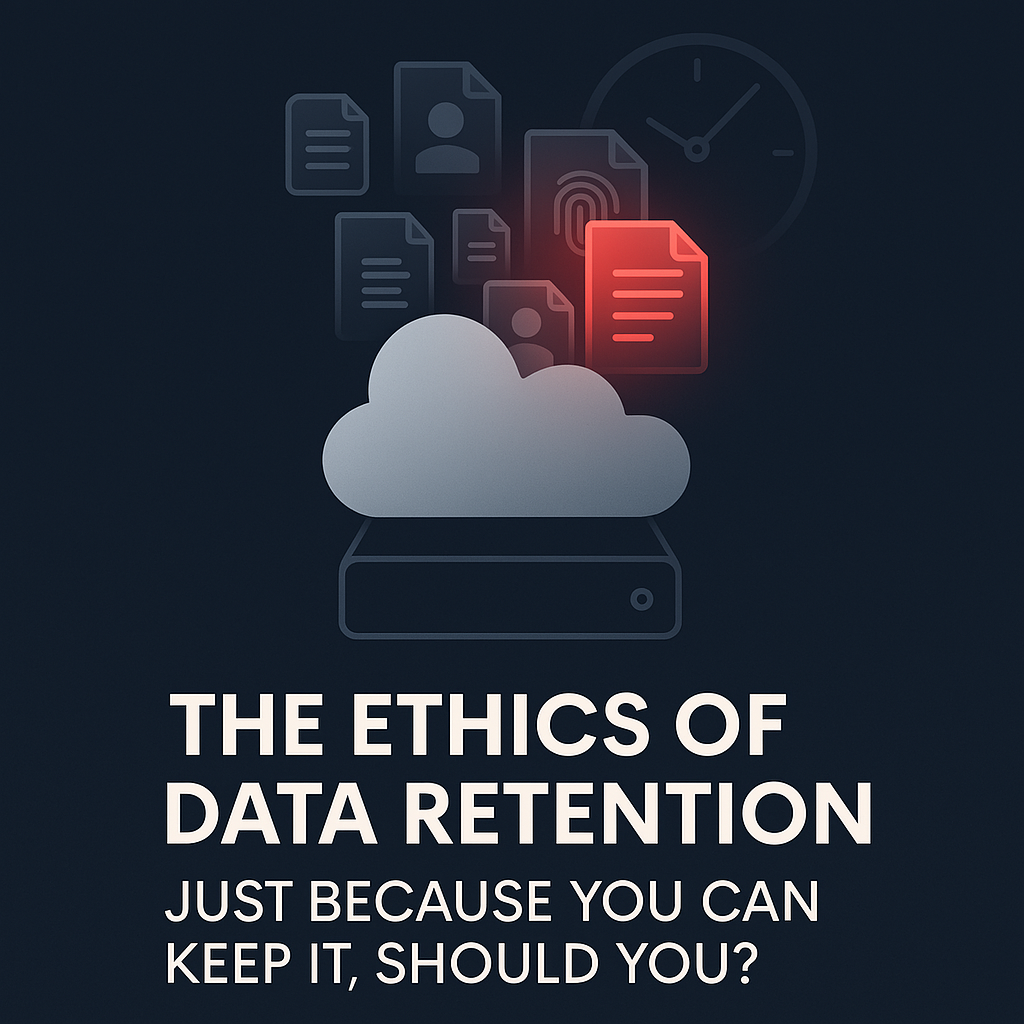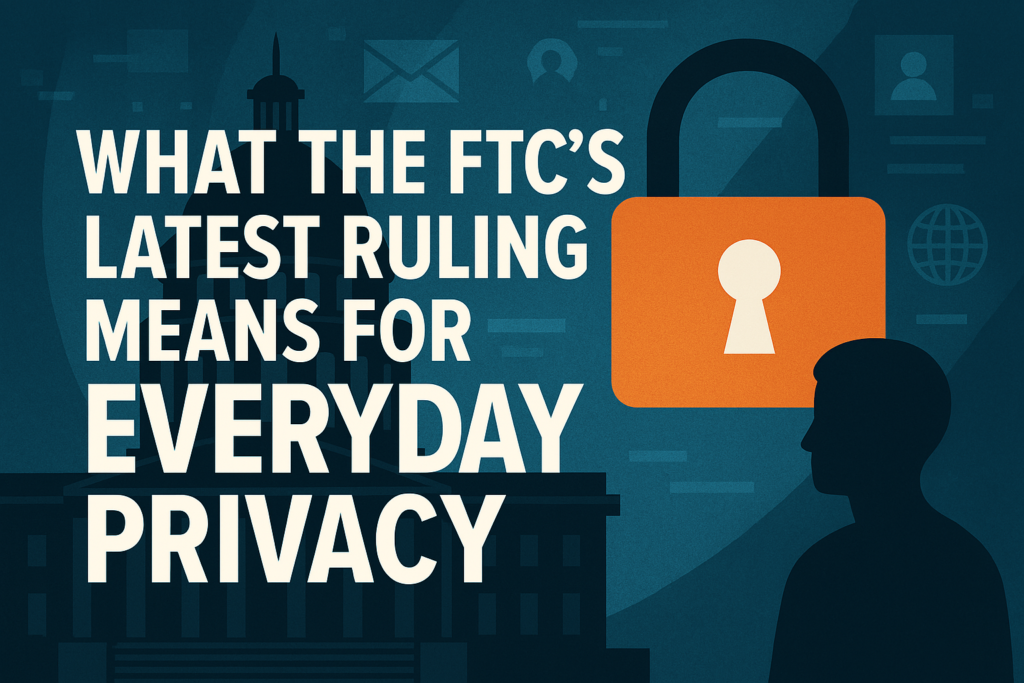The Ethics of Data Retention: Just Because You Can Keep It, Should You?
Published in: Ethics
Estimated reading time: 6 minutes
Introduction
In a world where data is often called “the new oil,” companies and institutions have become digital hoarders—collecting, storing, and rarely deleting vast amounts of personal information. But as storage becomes cheaper and more powerful, a deeper question surfaces: just because you can keep the data, should you?
This post explores the ethical dimensions of data retention—from legal requirements to moral responsibility—and asks whether our current practices are sustainable, fair, or even justifiable.
The Default to “Keep Everything”
Modern data infrastructure makes it easy—and cheap—to store massive volumes of information indefinitely. Emails, customer behavior, facial recognition footage, browsing history, and app usage are often held on servers long after their original purpose is fulfilled.
The reasons vary:
- Future value: “We might need this data later.”
- Machine learning models: More data = better predictions.
- Monetization potential: Historical profiles are ad gold.
- Internal inertia: Nobody sets expiration dates or deletion policies.
But the default to retain everything isn’t just lazy—it’s risky.
Legal vs. Ethical Data Retention
Most privacy laws, like the GDPR and CCPA, require data minimization and define limits on how long data can be kept. However, enforcement is inconsistent, and many retention policies are vague or buried deep in privacy policies no one reads.
Ethically, the bar should be higher.
- Is the data still serving the user’s interests?
- Is retention proportionate to the purpose it was collected for?
- Could keeping this data harm someone if it were breached or misused?
The ethical duty is not just to secure data, but to let go of it when it no longer serves a fair, necessary purpose.
The Hidden Harms of Holding On
Data retention is not neutral. It creates downstream risks and moral burdens:
- Security: The more data you keep, the more you expose.
- Consent fatigue: Users can’t meaningfully manage decades of invisible data trails.
- Chilling effects: People may self-censor if they believe their digital actions will be stored forever.
- Bias perpetuation: Historical data can bake outdated or discriminatory patterns into AI systems.
The ethics of data retention aren’t just theoretical—they impact real people in real ways.
Designing for Deletion
Forward-thinking companies and organizations are starting to build expiration into their systems. Ethical data practices might include:
- Automatic deletion policies (e.g., after 90 days, 1 year)
- User-controlled data expiration
- Retention audits to regularly review what’s stored and why
- Deletion by default, with justification for any exceptions
By treating deletion as a feature—not a threat—organizations can show users they respect their data not just in how it’s collected, but in how it’s handled long after.
Conclusion: Responsible Stewardship Starts with Letting Go
In the race for innovation and insight, holding onto everything may feel like the safest bet. But ethical data stewardship requires a shift—from “just in case” to “just enough, and no more.”
The question is no longer whether we can retain data indefinitely. It’s whether doing so respects the dignity, rights, and safety of the people behind the data.
Want more privacy insights like this?
Subscribe to The Privacy Brief for ethical deep dives, legal updates, and practical perspectives on digital rights.



